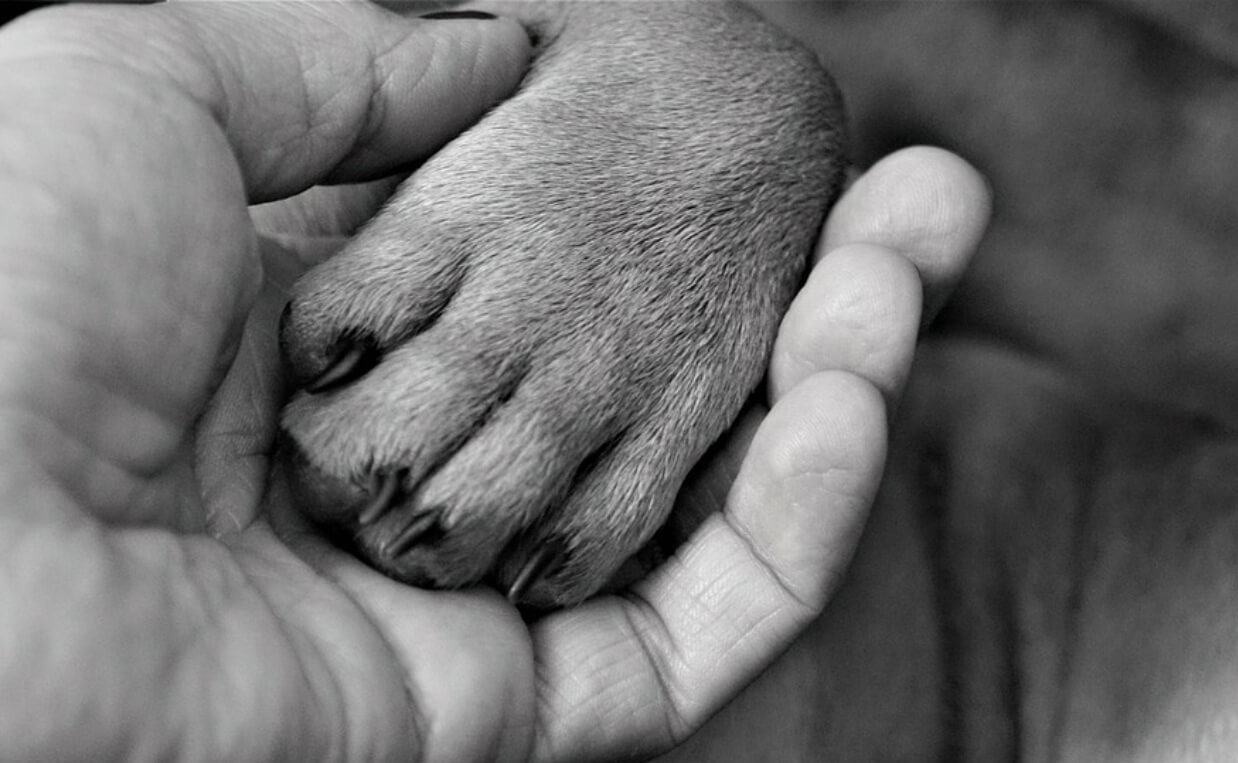
Dogs can be a strong emotional support during difficult times, including during the coronavirus outbreak. If you’re staying home more than you used to, it might be the perfect time to foster a dog. Fostering a dog can be a rewarding experience but there are certainly things you should take into consideration before contacting your local animal shelter.
June is National Foster a Pet Month so it’s a good time to think about fostering a dog. If you’re confused about fostering or aren’t sure exactly what’s involved, keep reading!
What is Fostering a Dog or Puppy All About?
Animal shelters typically place dogs or puppies in a foster care home if they are too stressed by the shelter environment, need more individual attention than shelter staff or volunteers can provide or are too young to be adopted.

Foster homes for dogs frees up space in the rescue facility so more dogs can be saved. It also gives the rescue group time to learn about the dog’s personality, behavior and needs before placing the dog in a “forever home”. Sometimes dogs are sick, injured, pregnant, nursing or traumatized and need a place to recover before placement. Sometimes a dog needs a foster home because they are elderly and need a loving hospice home or a young, energetic dog needs an environment in which he or she will learn some manners before being made available for adoption.
Some rescue organizations don’t have a shelter facility and rely solely on foster homes to shelter and care for the dogs they’ve rescued.
Foster care homes provide vital assessment, training and caregiving dogs need until they are ready to be adopted, or a suitable home becomes available. Fostering a dog or puppy is a vital aspect of lifesaving actions needed to rescue vulnerable dogs.

Dog Foster Care Responsibilities
The primary function of a dog foster care home is to provide a safe, loving environment. The basic requirement is to care for your foster dog the same way you would care for your own dog: provide nutritional food, affection, socialization, and exercise.
In addition, most foster care parents are asked to:
- Transport the dog to and from adoption events
- Participate in obedience training at home or attend classes with the foster dog
- Speak with potential adopters to help them determine if they’re a good match for the dog
- Stay in communication with shelter workers about how the dog is doing
- Transport the dog to and from veterinarian appointments
In essence, you will be asked to provide your foster dog with quality time to help him or her become healthy, happy, and adoptable.

Are You Ready to Foster a Dog or Puppy?
Before you decide to foster an animal, ask yourself these 10 questions.
-
Do you have space to separate the foster animal away from your own pets?
Most foster care programs require the foster dog (or puppy) be kept in a separate room, especially for the first few weeks, to ensure the animal is not harboring illness. This is critical if you have other pets in the home to ensure your animal is not infected. Most rescue organizations require an initial home visit to assess the suitability of your home for fostering.
-
Are you prepared to doggie-proof your house?
You will need to pet-proof your house to prevent damage to your home and keep your charge(s) safe. Mothers and babies can be messy and have accidents. A clutter-free room like a utility room or bathroom (preferably non-carpeted) is a good type of environment to start until you can assess the needs of your new foster animal.
Read more: How to Puppy Proof Your Home
-
Are you comfortable caring for a dog with medical needs?
Some dogs have illnesses or health issues that require special care, treatment, or medication. Make sure you’re willing and able to provide the care needed for the animal you’re being evaluated for.

-
Are your own pets healthy and current on vaccinations?
Introducing a foster dog or puppy can be a risk to your own dog(s), especially if they are medically fragile. If your own dog becomes sick, most rescue organizations will not cover the cost of veterinarian visits, medication, or treatment. Also, your own dog(s) will need to be current on vaccinations, spayed or neutered before you can bring a foster dog home.
-
Will you have time to spend with the dog or puppy?
Socialization is an important part of fostering, as well as feeding, grooming, training, and other normal dog – family activities. You will need to snuggle your foster dog, play with them, pet them, walk them, and treat them as part of the family. Make sure you are prepared to take the time needed to be a stellar foster parent.
-
Are you prepared to closely supervise your foster dog or puppy?
Foster animals are your responsibility. In addition to checking on them regularly, you will need to strictly supervise when around children under the age of 10.

-
Do you have reliable transportation?
You will be responsible for transporting the animal to veterinarian appointments (usually at the shelter) and adoption events. It is vital you have reliable, suitable transportation and a valid driver’s license.
-
Are you prepared for the death of an animal?
Most dogs survive in foster care (about 93 percent) but some don’t make it, for varying reasons. If death occurs, it will be difficult, even though you did everything you could to ensure the survival of the animal.
-
Are you comfortable discussing your foster dog with potential adopters?
You will need to feel comfortable telling people this is not your dog or puppy. You will need to be comfortable discussing the needs of the animal as well as the adoption requirements of the rescue organization.

-
Are you prepared to surrender your foster dog or puppy at the end of the foster period?
Foster families generally become extremely attached to the animal and sometimes find it difficult to give the dog or puppy up to the adoptive family. Most of the time you can adopt the animal yourself but you will be subject to the same process and charges as anyone else.
Fostering a shelter dog or puppy can be a uniquely rewarding experience. You will be making a tremendous difference in the life of an animal (or animals) as well as making room for other dogs at the shelter facility.

If you’re ready and want to learn more about animal foster care opportunities in our area, consider contacting these organizations:
- Have a Nice Dog All Breed Rescue & Training
- Humane Society of the Pikes Peak Region
- Pals Forever Animal Rescue
Have you fostered a dog or puppy? How was your foster care experience? Please share with the rest of the Canine Campus community by commenting below…

 Should You Feed Your Puppy Adult Dog Food?
Should You Feed Your Puppy Adult Dog Food? What To Expect When Adopting a Dog With Behavior Problems
What To Expect When Adopting a Dog With Behavior Problems 5 Reasons to Adopt a Senior Dog
5 Reasons to Adopt a Senior Dog 15 Heartwarming Reasons to Adopt a Shelter Pet
15 Heartwarming Reasons to Adopt a Shelter Pet Top 8 Questions to Ask Before Adopting a Shelter Dog
Top 8 Questions to Ask Before Adopting a Shelter Dog






Leave a Reply